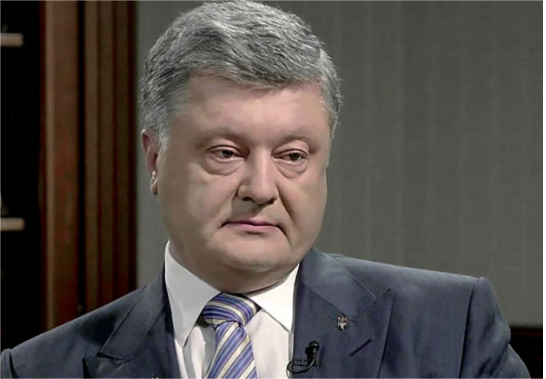National Security Council Imposes Sanctions on Poroshenko
Ukraine’s National Security and Defense Council (NSDC) has announced a new set of sanctions, sparking intense political debate. The move, confirmed on Wednesday, has led to strong criticism from opposition figures, including Former President Petro Poroshenko, who views it as an unfair and politically motivated decision. According to the government, the sanctions are directed at individuals accused of endangering national security or aiding external threats. The exact details of the sanctions have not been fully disclosed, but officials have confirmed that they include asset freezes and economic restrictions.
The decision follows a statement from the country’s leadership emphasizing the need to protect national interests. Officials have argued that these measures are essential for preserving national security and ensuring that resources are used to strengthen the country’s defenses. The announcement also aligns with ongoing efforts to hold accountable those who have allegedly acted against the country’s stability. However, this action has led to significant backlash, with many questioning whether the move is truly about security or if it serves a political agenda.
The country’s leadership has stated that those targeted, including Former President Petro Poroshenko, have played a role in destabilizing Ukraine, and these measures are necessary to prevent further harm. Officials maintain that the decision was made after a thorough investigation and that the sanctions are not politically motivated. However, critics argue that the use of national security policies in this manner sets a dangerous precedent. They fear that these measures could be used to silence opposition voices rather than address actual security threats.
Opposition Criticizes Government’s Actions
The announcement of the sanctions has led to strong condemnation from Former President Petro Poroshenko and his supporters. In a video statement posted on social media, Poroshenko described the decision as unconstitutional and an attack on democracy. He accused the leadership of misusing security measures to suppress political opposition rather than addressing real threats to the country. The statement further warned that such actions could create deep divisions at a time when unity is essential.
Supporters of Poroshenko argue that the government is prioritizing political battles over national interests. They claim that the move is designed to weaken opposition forces and consolidate power rather than serve the public good. Many political analysts have noted that the timing of the sanctions raises concerns, as they come amid growing tensions and internal conflicts.
On the other hand, government officials insist that the sanctions against Poroshenko and others are justified. They argue that individuals who have allegedly worked against national interests cannot be allowed to continue their activities without consequences. The government has reiterated that these measures are part of a broader effort to protect the nation from internal and external threats. They maintain that the move is about justice, not politics, and that accountability must be enforced to prevent further instability.
Despite these assurances, the decision has intensified political debates in the country. Many citizens and political observers are questioning whether the government’s actions are truly focused on national security or if they are being used as a tool to eliminate political opponents like Poroshenko. The controversy has drawn attention to the broader issue of how security policies are applied and whether they are being used fairly and transparently.
Escalating Political Tensions
The fallout from the sanctions has deepened political tensions within the country. Supporters of Former President Petro Poroshenko see the move as a direct attack on democratic values, while government backers believe it is a necessary step to maintain stability. The disagreement has fueled heated discussions on the role of national security in governance and whether it is being manipulated for political purposes.
The situation has also raised concerns about the potential impact on the country’s political landscape. The full details of the sanctions are expected to be released soon, which may provide further insight into the government’s justification for the decision. However, the current uncertainty has already caused divisions among political groups, with some calling for immediate reviews of the measures imposed.
Observers note that this development highlights a growing divide within the country’s leadership. It has also sparked debates on the balance between security and political freedom. The controversy has added to the ongoing tensions within the government and opposition forces, making it clear that the country is facing a critical moment in its political history.
As the situation continues to unfold, many are closely watching how the leadership will handle the backlash. The country remains on edge, with both sides standing firm in their positions. The outcome of this dispute could have lasting effects on the country’s political stability and how future security policies are enforced.


